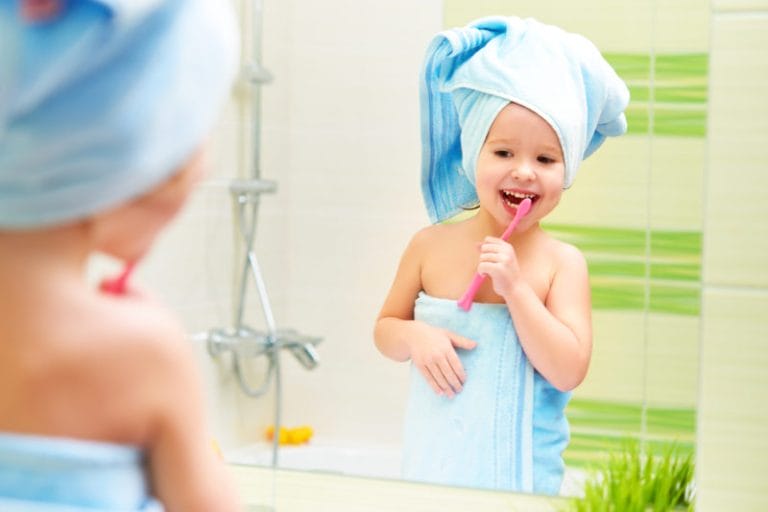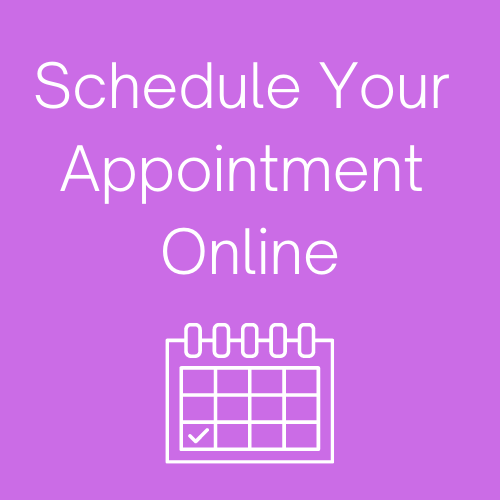Determining when to take your child to the dentist can be confusing. You may have heard that you should wait until all of their teeth have come in, or that you should take them only if they have a problem. If you wait until either of these happen, then you’ll be taking your child in too late.
So, when do you take your toddler to the dentist? It is recommended that you take them in as soon as their first tooth has erupted, or at least within six months of the tooth coming in. The sooner you get them in, the better.
Why Take Toddlers to the Dentist After Getting Their First Tooth?
It may seem like taking your toddler to a pediatric dentist after their first tooth erupts will be a waste of time. After all, it’s only one tooth. However, a lot of information can be learned at this point in time, and the dentist will be able to determine if the rest of your child’s teeth will come in the way they are supposed to.
The dentist can also give you important information on how to take care of that one tooth and all of the other teeth that will soon be growing in. This information will more than likely pertain to the following:
- Developing proper mouth cleaning habits
- Tooth decay and bottles
- Best feeding practices for your growing child
- The impacts of pacifiers
- The impacts of sucking on fingers
- What to expect during the teething process
Having all of this information beforehand can help reduce the chances of problems occurring in your child’s mouth. It will also make it easier to create and implement dental care routines to keep your child’s teeth clean and healthy.
Getting Your Child Ready for Their First Appointment
Some people get stressed when they know they have to go to the dentist. A lot of adults don’t like to make appointments, so imagine how scary it might be for your child. However, starting them early and before a problem arises will show them that dental visits aren’t always bad. In fact, going when they don’t have any issues can make them more comfortable and willing to go in the future.
To ensure that the first visit goes as smoothly as possible, you might consider scheduling the appointment in the morning. Your child should be alert and awake, which could reduce the chances of a meltdown.
Let your child know what to expect, and tell them how important it is to go to the dentist for healthy teeth. They will probably have a lot of questions, so do your best to answer them. If you don’t know the answer, tell your child that’s something they can ask the dentist.
If you happen to have fears about the dentist, do your best not to project those onto your child. Your role should be to support and comfort them, not make them fearful. Do what you can to make the first visit exciting and fun.
What You Should Do at the Dentist
In addition to preparing your child for their first dental visit, there are some things you’ll need to do as well. This includes putting together a list of questions or concerns you’ll want to discuss with the dentist. You’ll also need to have your child’s complete health history so that you can share that with the dentist. You’ll also need to bring your dental insurance card.
It’s also important that you share information about your child’s behavior with the dentist and the dental hygienist. Let them know if your child is shy or outgoing, or if they can be stubborn or defiant. Keep in mind that the professionals in dental offices have worked with many different types of kids, so they probably have some tricks up their sleeves to ensure that everyone stays calm during the visit. However, giving them a head’s up can be beneficial.
What to Expect During the First Visit
Typically, the first visit to the dentist is to help your child feel comfortable. That’s why it’s important to schedule this appointment as soon as possible after their first tooth has erupted before there is an issue.
Depending on the age of your child, the dentist may conduct a full exam that will look at the teeth, gums, bite and oral tissues. They may even check to see how your child is growing and developing. The dentist may do a gentle cleaning, just to give your child an idea of what the normal process looks like.
Your dentist may or may not recommend having X-rays done. If there is any concern about decay or issues with how your child’s teeth are coming in, X-rays may be part of the process. The dentist should let you know if they think X-rays will be beneficial on the first visit or not. If you have any concerns, this is when you need to bring them up.
Scheduling a Second Appointment
Just like adults, it is recommended that children visit the dentist every six months. This ensures that their teeth are coming in properly and allows them to discover if there are any developmental issues within their mouth. Catching these as early as possible can prevent major problems from occurring in the future.
Taking Care of Your Child’s Teeth at Home
The first step in ensuring that your child has the best dental checkup possible is to take care of their teeth at home. Starting them as early as possible with a brushing schedule will keep their teeth clean and healthy. Here are some other ways to achieve that goal:
- Before your child’s teeth have come in, you need to clean their gums with a damp cloth
- After the first tooth has erupted, use a soft-bristled brush and a tiny amount of toothpaste to keep it clean
- Stay away from toothpaste with fluoride until your child turns 3
- At naptime or bedtime, don’t give your child a bottle that has juice, milk or other sweetened drinks
- Limit the time your child has a bottle to five or six minutes
Want a fun way to keep your children actively brushing their teeth? Check out our free printable teeth brushing schedule!



